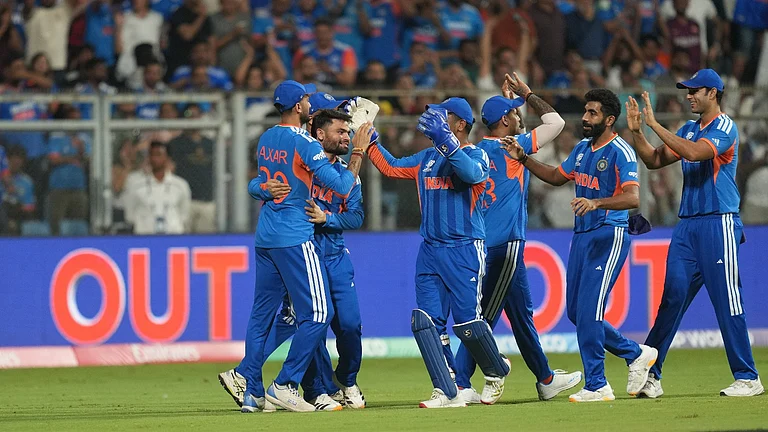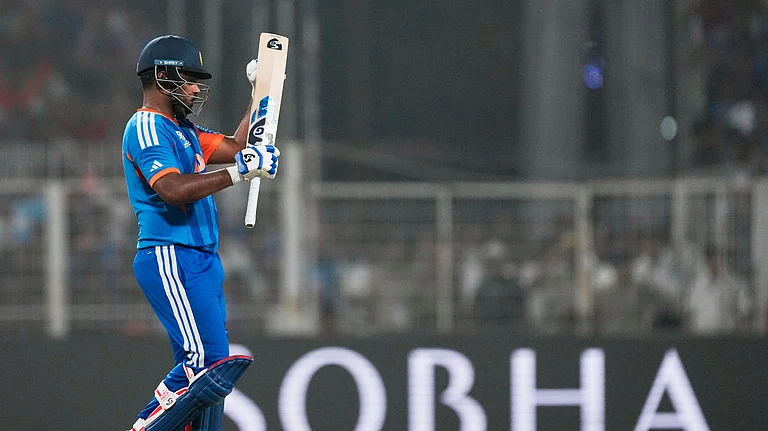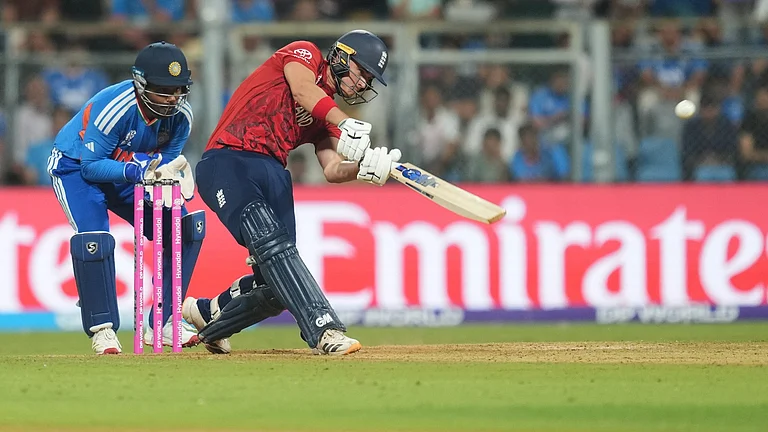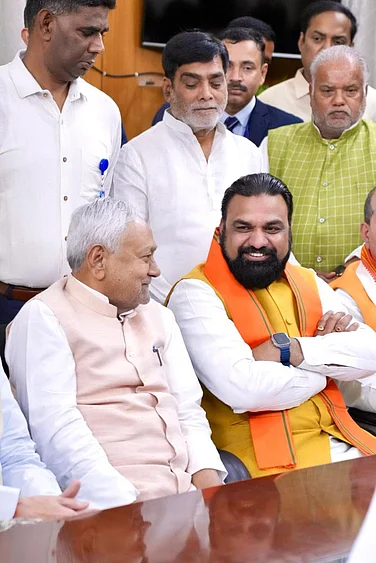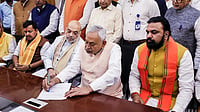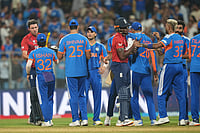Over four decade old Supreme Court judgement is proving to be an irrefutable thorn on the Centre’s claim that “breakdown of constitutional machinery” in Jammu and Kashmir led to 5 August 2019.
The Centre had claimed that the “breakdown of constitutional machinery” in J&K led to President’s rule under Article 356 in December 2018 and heralded events leading to the abrogation of Article 370 and abolition of the State of Jammu and Kashmir.
“A one-page judgment pronounced by a Constitution Bench of the Supreme Court 42 years ago pertains to former Tamil Nadu Chief Minister M. Karunanidhi,” reported The Hindu.
The report stated: “the miniscule verdict, containing just one paragraph, was produced by senior advocate Shekhar Naphade before a five-judge Bench headed by Chief Justice of India (CJI) D.Y. Chandrachud hearing the challenge to the repeal of Article 370 from the Indian Constitution.”
“The 1971 judgment, in a nutshell, holds that once a Governor dissolves a State’s legislative Assembly and assumes powers of the State, there is no question of the President taking over by claiming ‘failure of constitutional machinery’ under Article 356 of the Constitution,” it mentioned.
“Naphade, for the petitioner side, said it was ‘absurd’ for the President to claim there was a ‘breakdown of constitutional machinery’ when the reins of the State was with the very Governor he had appointed,” it added.
“The Governor is not elected but he is appointed by the President under Article 155, and Article 356 makes provisions in case of failure of constitutional machinery in the State. But when an assembly is dissolved, there is no failure of the constitutional machinery within Article 356,” the Constitution Bench judgment in Thiru K.N. Rajagopal versus M Karunanidhi, authored by Chief Justice S.M. Sikri, on March 17, 1971, held, the report mentioned.
In Jammu and Kashmir (J&K), the Governor, under Section 53(2) of the J&K Constitution, dissolved the State legislative assembly on November 21, 2018.
The proclamation of President’s rule under Article 356 was issued a month later, on December 19, 2018.
Parliament approved the proclamation of the President on January 3, 2019. The President’s rule was extended in J&K for six months with effect from July 3, 2019.
Under the cover of President’s Rule: “On August 5, 2019, the President issued the Constitution (Application to Jammu and Kashmir) Order which inserted a new provision, Article 367(4), in the Indian Constitution. This replaced the expression ‘Constituent Assembly of the State’ in the proviso to Article 370(3) with ‘Legislative Assembly of the State’. The same day saw Parliament abrogate Article 370 and pass the Bill to reorganise the State of Jammu and Kashmir. The next day saw the President declare that Article 370 has ceased to apply,” the report mentioned.
“Beneath the apparent constitutionality lay the patent illegality,”Naphade said, as per the report.
“Once the State Assembly was dissolved, there was no question of machinery having failed. Consequently there cannot be an exercise under Article 356… This Presidential proclamation under Article 356 is clearly without jurisdiction. The reason is the Governor had already dissolved the legislative assembly and assumed all the powers of the State. Now the Governor assuming the powers cannot be a breakdown of the constitutional machinery… It would be absurd to suggest that and have the President intervene under Article 356,” he argued, the report mentioned.
The senior lawyer said the purpose of Article 356 was to restore normalcy to a State, not to do away with the State, it mentioned.
He referred to the Constitution Bench judgment in the S.R. Bommai case, which said that a State as a “constitutional entity” must survive Article 356, it added.
“Here, ultimately, they wanted to do away with the State,” Naphade said, the report said.



